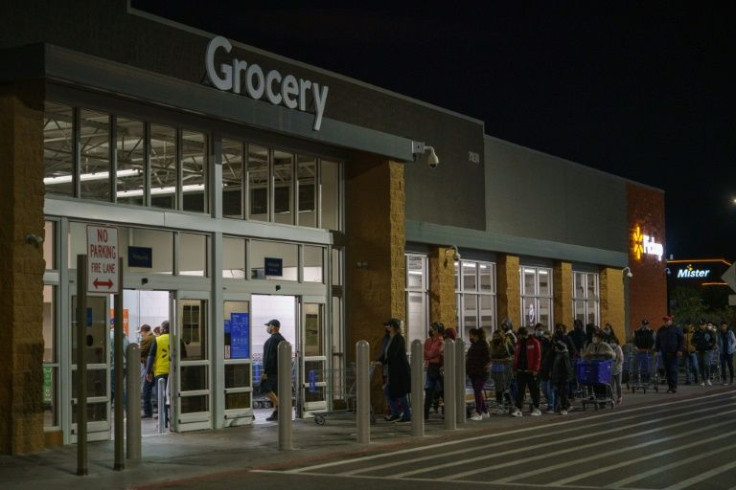Walmart Reports Solid Q4 Profits On Strong US Consumer
Walmart reported better-than-expected quarterly profits Thursday as its reputation for affordability produced strong US sales growth during the holiday shopping season, offsetting the hit from higher costs.
The giant global retailer, which has seen revenues surge during the Covid-19 pandemic, pointed to some $400 million in higher-than-expected supply chain costs at its US division, plus an additional $400 million hit due to employee absences during the Omicron wave of Covid-19.
But these effects were countered by "strong underlying trends" at Walmart US, "aided by robust consumer spending and a strong holiday," the firm said in an investor presentation.
The company highlighted apparel and automotive goods, along with groceries, as items with especially strong demand during the fiscal fourth quarter, which ended January 31.
Profits in the latest three months hit $3.6 billion, compared with a loss of $2.1 billion in the same quarter of 2020.
Neil Saunders, analyst at GlobalData, pointed to the 5.6 percent jump in US comparable sales as an especially robust result.
"For a business as dominant and with as much consumer penetration as Walmart, this is an exceptional outcome that underlines the fact Walmart has got a lot of things right during the past two, highly disrupted years," Saunders said.
Walmart's annual revenues came in at $572.8 billion up nearly $50 billion from two years ago.
Chief Executive Doug McMillon highlighted the increase during a conference call with analysts, quipping that "sometimes it feels like 2020 and 2021 were just one long year."
Walmart expects sales to grow about three percent in the current fiscal year, guidance that assumes some improvement in supply chain problems and that "the US consumer remains in a generally favorable economic position throughout the year," said Chief Financial officer Brett Biggs.

The retail industry, like other sectors, is being forced to navigate a challenging inflationary environment due to higher expenses for and shortages of materials, shipping and labor.
Walmart has said it has taken a careful approach to raising prices that seeks to spread out the hit across consumer "baskets" so it doesn't lose customers to other chains.
Executives also pointed to increased use of "rollbacks" -- or price cuts -- on some goods as a way to offset price increases on other items.
McMillon expressed confidence in Walmart's ability to attract consumers given its reputation as a value retailer.
Although the jump in US consumer prices to four-decade highs has shocked many shoppers in its home market, Walmart has extensive recent experience with inflation in other markets, McMillon said.
"During periods of inflation like this, middle-income families, lower middle-income families, even wealthier families become more price-sensitive, and that's to our advantage," he said.
"Inflation is a different environment in the US right now than it's been in recent times for sure, but we've been dealing with inflation in South America and Mexico and other places."
Analyst Saunders said the retailer should be able to hold its own against growing competition from firms like Aldi and dollar stores.
"With its enormous buying power and unsullied reputation for value, we believe that Walmart will be one of the main beneficiaries of continued inflation," Saunders said.
Briefing.com described the results as "solid," lifting expectations about the performance of other chains.
"The bigger picture takeaway here is that consumers are not shriveling up despite inflation," Briefing said.
Shares rose 4.0 percent to close at $138.88.
© Copyright AFP {{Year}}. All rights reserved.





















